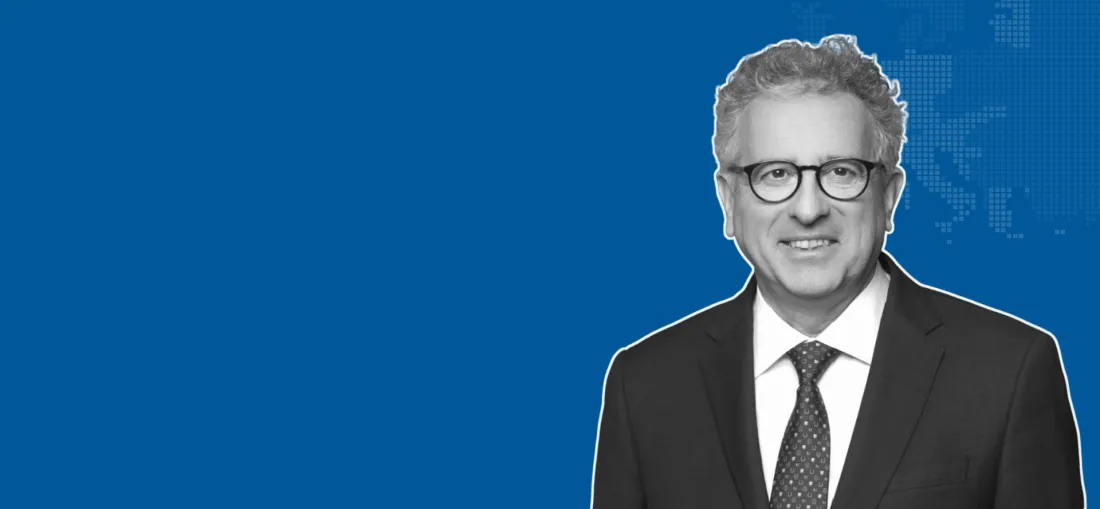Croatia, the 20th member of the euro area - remarks by Pierre Gramegna

Pierre Gramegna, ESM Managing Director
Remarks at panel discussion “The euro as a guarantee of resilience”
International conference “Croatia, the 20th member of the euro area"
Zagreb, 24 January 2023
Joining the euro area at record speed is an impressive achievement. At the same time, your second achievement is that you are joining the Schengen Agreement. And third, you are going to join the European Stability Mechanism (ESM) quite soon - in fact, in a couple of weeks. Being a member of the monetary union will bring many advantages. For citizens, they will not have to exchange money when they travel within the euro area. And for companies, it will help to attract investments and capital to your country.
As a Luxembourger, and as the new Managing Director of the ESM, which has its headquarters in Luxembourg, let me share this story with you: Schengen is in Luxembourg, and nowhere else. It is a very small village at the border of France, Germany, and Luxembourg. Schengen today may be one of the most famous small villages in the world. In many airports you walk through, you see “Schengen”. Croatia is now part of that tiny village that had, back then, when the Schengen Agreement was signed, only a little over 250 inhabitants, that now symbolises a passport-free area of over 400 million people.
The accession to the euro, the accession to the Schengen Agreement, and the accession to the ESM soon, are strongly anchoring your country into Europe; you have achieved the deepest form of integration. And as Paolo [Gentiloni] pointed out rightly, it anchors you in peace, in welfare, and in the four freedoms that we have in the EU Single Market. We take these freedoms for granted, while we should not. I am referring to the freedom of movement of people, of goods, services, and capital. They symbolise Europe’s attachment to free markets and openness.
Croatia is joining the euro at a time when the ESM exists and when it is taken for granted. The founding members of the euro joined when the ESM did not exist. It was a missing part in our European architecture. The euro area started without an ESM. And during the sovereign debt crisis, we all recognised that we needed protection for all the euro members. As a result, the ESM treaty was negotiated and became effective in 2012, basically ten years ago. We recently celebrated the 10th anniversary of the ESM.
Five countries benefited from ESM support during the sovereign debt crisis. This stability support brought good results. I will travel to Greece and will be able to see that Greece has recovered very well since the crisis.
But the ESM is not only useful when there is a crisis. Its mere existence increases the stability of your country and on financial markets. It ensures that you have better access to capital markets.
The new ESM treaty was negotiated in 2020. I am glad to hear that Croatia, as Marko [Primorac] mentioned, will ratify the old [2012] and the new ESM treaty [2020] to make it better and more efficient quite soon. Hence, Croatia will benefit from this protection. And the protection is a current lending capacity of around €417 billion thanks to a paid-in capital of more than €80 billion. It is the international financial institution with the highest paid-in capital in the world. And Croatia will be represented in the ESM Board of Governors.
The ESM is expected to play an even larger role and contribute to resilience in the future. The word “resilience” comes from the Latin resilire, which means that something cannot easily be broken up and that something easily bounces back. Resilience is something that we always strive for in our life, and which we also seek to achieve for our country and for our economy.
The ESM has ensured such resilience over the past ten years. And the euro area and the ESM together have weathered quite a few crises in the last ten years. One can say that we have done well in terms of preserving stability and contributing to resilience.
But more needs to be done. Fortunately, there is a new treaty of the ESM that was negotiated in 2020, which is up for ratification and Croatia will join soon. The new treaty brings us two valuable things.
First, it will give the ESM a new role as the backstop for the Single Resolution Fund. The idea behind is that the firepower of the ESM can be used for the resolution of banks if the funds in the Single Resolution Fund are depleted.
It provides an additional layer of protection and makes sure that we avoid the vicious circle of private and sovereign debt that we saw in the past. The Single Resolution Fund plus the backstop of the ESM will avoid that it is public money that is going to bail out banks. I think this is very important.
Second, we all agree that it is necessary for the ESM to play a larger role in preventing crises. What we did in the past was addressing issues of countries that were facing terrible financing problems and were about to lose access to capital markets. Meaning, the crisis was imminent. It was not only looming; it was evident. And it is much better to prevent crises. Anticipating them is less costly and more efficient.
The ESM came up with some good ideas during the pandemic, it reacted very quickly. We need to have similar examples with the present crisis that we are facing, as Commissioner Gentiloni has just alluded to. And that is something that I consider my main task as the new Managing Director. I will see Prime Minister Plenkovic, and I am going to have a discussion with Marko Primorac to understand how the Croatian government, Croatian people, Croatian companies, see their role and where the ESM can help.
I am going to do a tour to all the capitals to collect the impressions, the demands, the ideas of all the countries and hope that from that basis, as the Managing Director, I will be able to make proposals that can find consensus. The idea is that the Managing Director makes proposals that hopefully can “stay the course”, as Christine Lagarde said. This is the work we, the ESM and its shareholders, are going to do together.
In conclusion, I would like to reiterate my congratulations to Croatia also on behalf of my predecessor Klaus Regling, who has worked very hard to make sure that the accession of Croatia would happen as swiftly as possible, and it is happening now. Being a shareholder of the ESM, together with joining the Schengen area and the accession to the euro area is the best way for the future.
Author

Contacts


